
There were so many setbacks that the movements, traditional peoples and communities, and the more grassroots levels of Brazilian society suffered following the 2016 coup. In 2023, Brazil is free of its extreme right government and this opens up a window of opportunities to reclaim rights. But nobody is willing to reconstruct everything from zero. So much has been constructed and won, and there is no time to lose.
This is one of the principal messages that resonated after the VIII CESE and Social Movements Meeting, which took place on 13 and 14 March. The assessment the groups made about recent years – principally the four most recent – is that much that was won over the last decades was too easily and too quickly destroyed, and nobody is in any doubt about why.

“Everything was reversed so quickly, because it was all so fragile. Nothing was structured. Now we need to say what we want: for this government to leave a more consistent and structured legacy”, declared Mônica Oliveira, from the Black Coalition for Rights (Coalizão Negra por Direitos).
Cris Faustino from the Brazilian Network for Environmental Justice (Rede Brasileira de Justiça Ambiental) preaches firmness. “We want to guarantee rights. For them to stop the violence against indigenous peoples, black populations and LGBTQIA+ population. For the secretaries and ministers who are important to us to have the political scope and the necessary budget. We want equality within public administration and not something isolated.

Mércia Alves, from SOS Corpo – the Feminist Institute for Democracy (SOS Corpo – Instituto Feminista para a Democracia) also had a caveat about the importance of not accepting a downgrading of the movements’ agendas. “The struggles of the countryside and the city, of women, to confront racism, are not only about identities, however important it is for us to represent ourselves as subjects of the struggle. We can’t downgrade our agendas. Otherwise, we’ll suffer from the same problems we did 20 years ago. And I’m not willing to do that.”
Given the change in the political scenario, the debates frequently touched on the need to mobilize support from the Federal Government. Although there is a feeling of respect from the groups, there is a marked feeling of caution. The movements think they made a mistake in not pressurizing the government 20 years ago, because they feared weakening it. A mistake that cannot be repeated this time.
Even with the defeat of the extreme right in the presidential race, there is a unanimous understanding of the need to pull the current government towards the left, since it started its mandate already full of ties – to agri- and water business and to mining. All these are alarming indications that the big business lobby and the patriarchy will have the space and power to try to impose their agendas
Racism, the patriarchy and capitalism: what is urgently needed over the next four years
We will face many challenges over the next four years. There is an urgent need to understand how we should communicate with the grassroots levels who have withdrawn from the left, to combat disinformation. The climate crisis is advancing, those most affected are traditional peoples and communities, the black populations and those in the peripheries, but it is the right that has been able to put forward its “alternative” position.
More than ever, agri- and water-business and mining hold assets that the movements still do not have, and this was explicit in the words of Jamilton Carreirinha, from the pasture and grazer communities in the west of Bahia. “I must be the fifth or sixth generation from my community who experiences the fight against the agri-business and foreign capital that is being investigated in the region.”

He added, “Agribusiness is in charge and deals the cards. Every passing day, we feel we are losing territory. A rancher arrives today saying that the land is theirs, tomorrow it’s someone else’s. They say they’re going to generate employment and income. What administrator doesn’t want that?” he said, criticizing the Bahia State Government, which, for 16 years, has been led by a party that occupies a political position on the left, but has accumulated a tragic legacy on the environment and one of extreme violations of the rights of traditional peoples and communities.
The extent of the operations of religious fundamentalists that we see today continues to be extremely threatening. The right’s political project is theocratic, contrary to state secularism, in the words of Makota Celinha, from the National Centre of Africanity and Afro-Brazilian Resistance (Centro Nacional de Africanidade e Resistência Afro-brasileira: CENARAB).

“In 2016, we suffered a coup supported by the church. Neo-Pentecostalism and the right propose a theocratic state. What is the left’s role in this? We need to work against hate, intolerance and racism in our society. If we don’t learn from our mistakes, we could sustain historic failures.”
More than anything, we cannot lose sight of the structures that support all the inequalities of the capitalist system: racism, sexism, and inequality. As Mércia Alves says, we need to be attentive to the type of society we want.
“Hegemony is a political project for society and we need to think about what ours is. When we identify capitalism as our antagonist, we cannot understand it as an abstract. It is a system for structural domination, for the oppression of race, class and gender,” she noted. In this sense, Cris Faustino underlined the existence of these tensions and how they need to be faced head on and further examined in our work.
“On race – showing that white people need to see themselves – and be unsettled – in this debate. About gender – if people do not feel comfortable about their existence within their own territories, many of them will leave. Popular education, because we have wealth. We need to build collections and learn to talk to our people. And generational. Young people don’t simply want to repeat what we have done. They have their own demands and want to be recognized as political subjects.”
Mônica Oliveira complemented this by saying that it is impossible to separate the class struggle from these tensions as systems of oppression. “Racism is not an illness, nor is the patriarchy. They are systems of oppression. Do you think capitalism would continue today if it weren’t for women’s work? The patriarchy sustains capitalism. Racism defined the way capitalism was established in the world,” she concluded.
The next four years will be marked by many disputes, and to a large extent those of narratives. We need to push for the reforms that have been neglected by previous governments – agrarian, urban, political. To demand public policies for the working class, the demarcation of traditional and original territories. To rebuild youth policies.
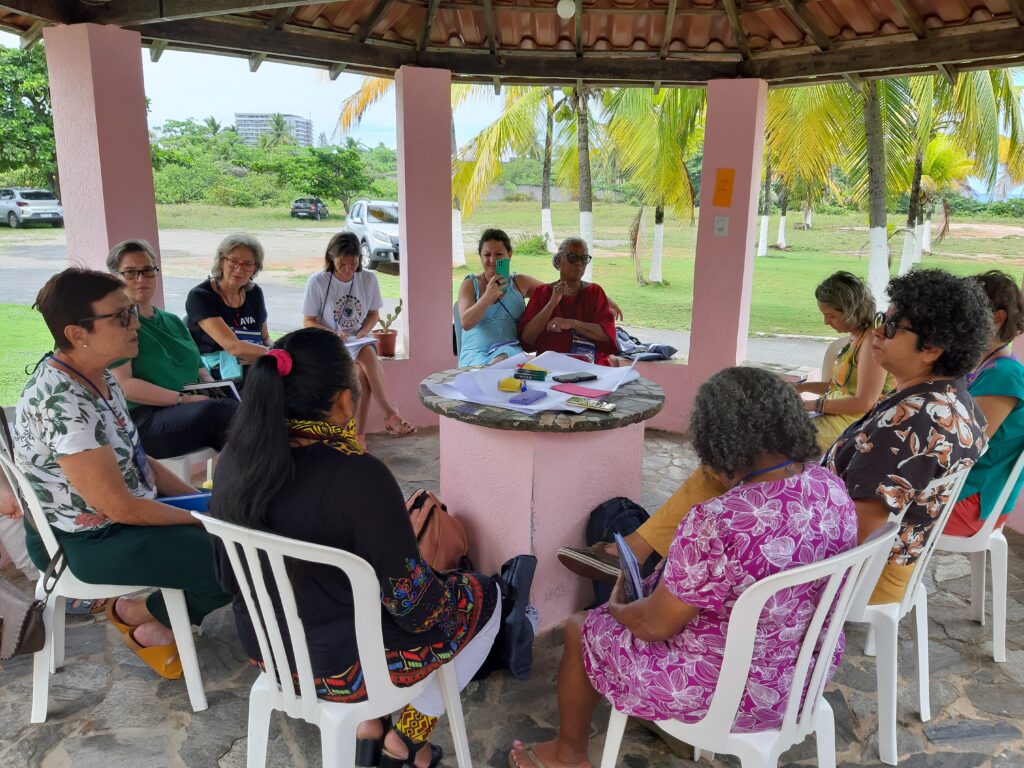
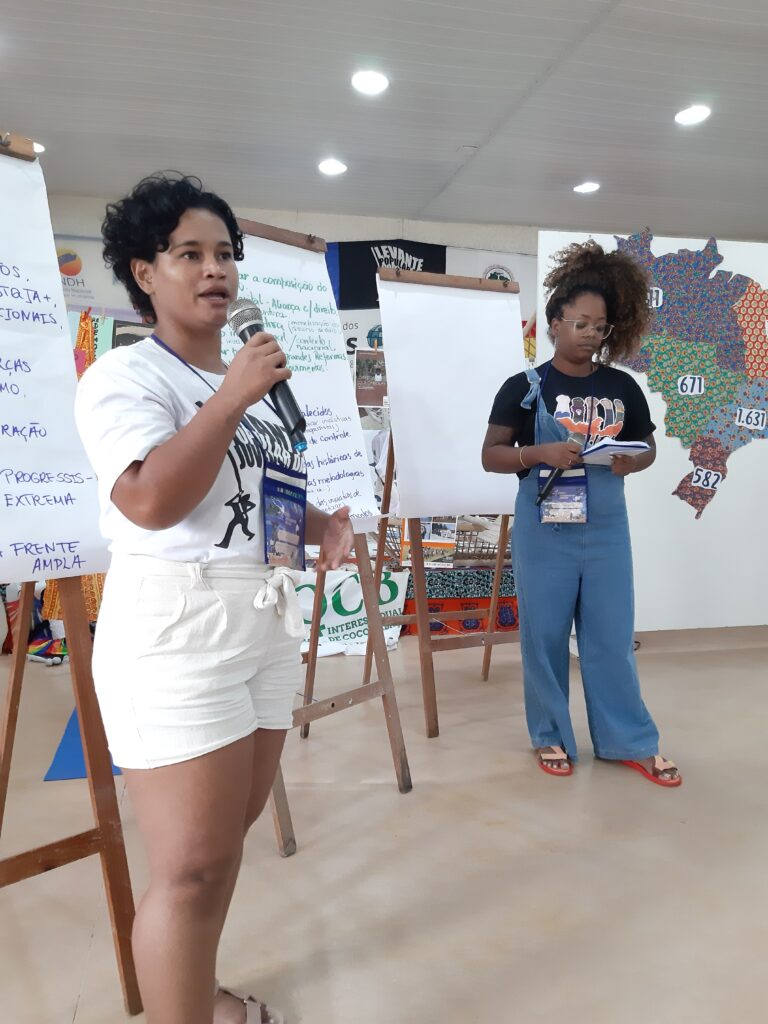
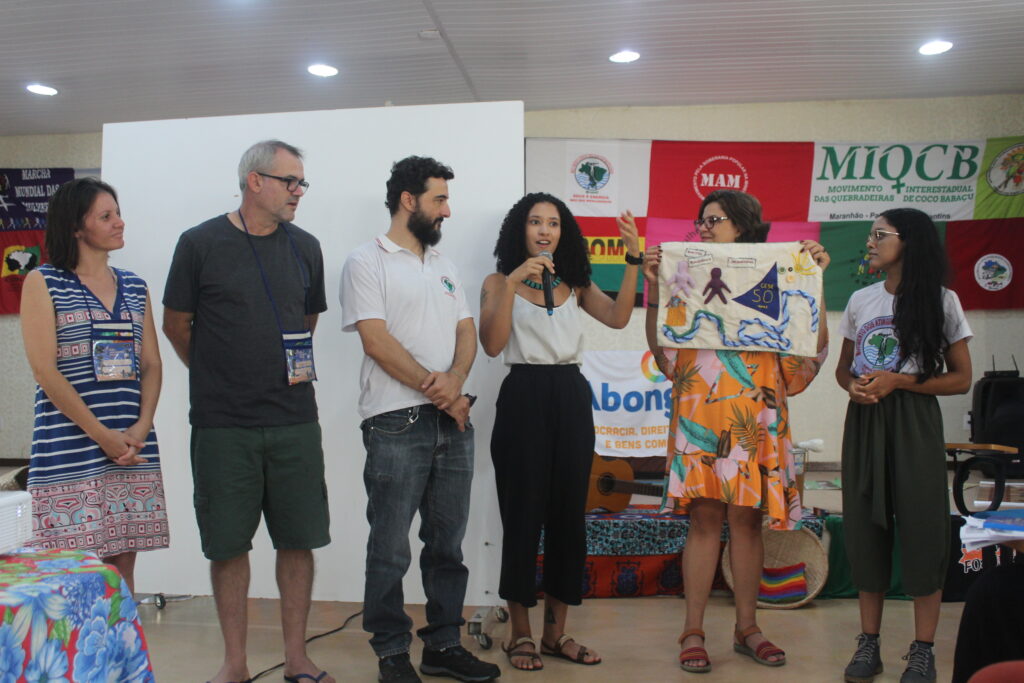
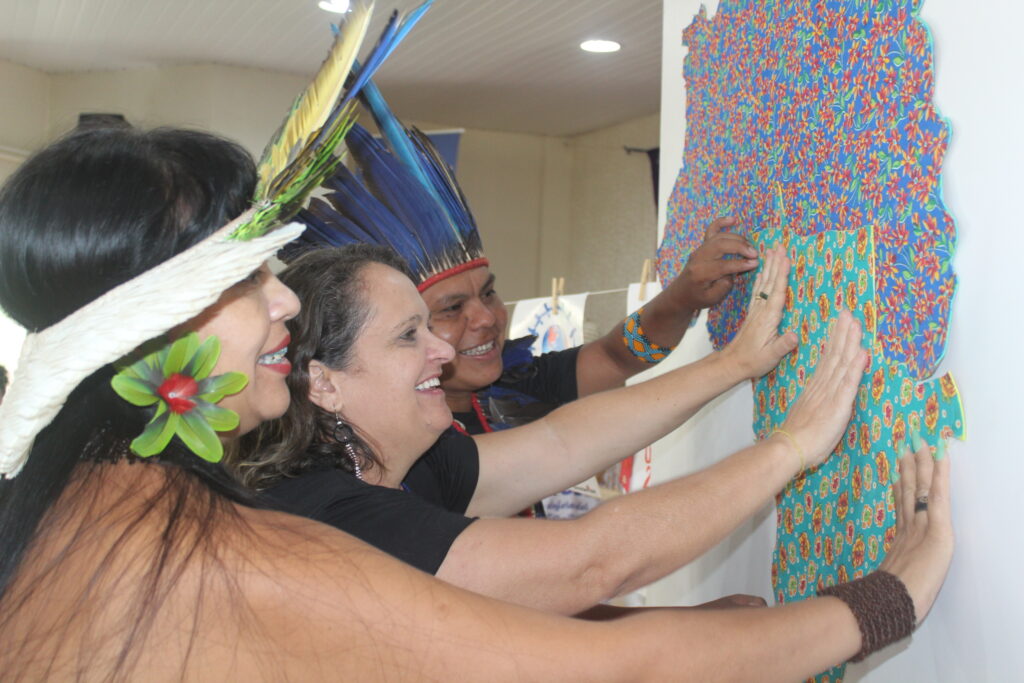
We need to fight for decent housing in Brazil, not allow it to be reduced to the construction of precarious houses far from public services and jobs. We need to guarantee access to education, to health centres, sanitation, quality transport. Reconvening the councils is important, but it’s nothing new. The rights accumulated so far allow us to resume processes at their most advanced points, gained by the historical struggle of the movements.
Nobody is going to die of thirst on the banks of the rivers or of hunger in the heart of the forests, the countryside and the cities. Nobody is going to die as a victim of racism, of femicide, of domestic or police violence, or from agri-business in the gunmen who steal land, from politicians responsible for these atrocities or from the religious fundamentalism that feeds hate. Long live the struggles of the movements!
Historical meeting: 50 years at the side of the movements
Last held in 2019, the meeting with the movements is one of CESE’s principal strategies to ensure it remains aligned with the struggles of the grassroots movements. Since 2005, the organization has brought various leaders from different movements in Brazil to Salvador, to listen to their reflections about the political situation at the time and their recommendations.
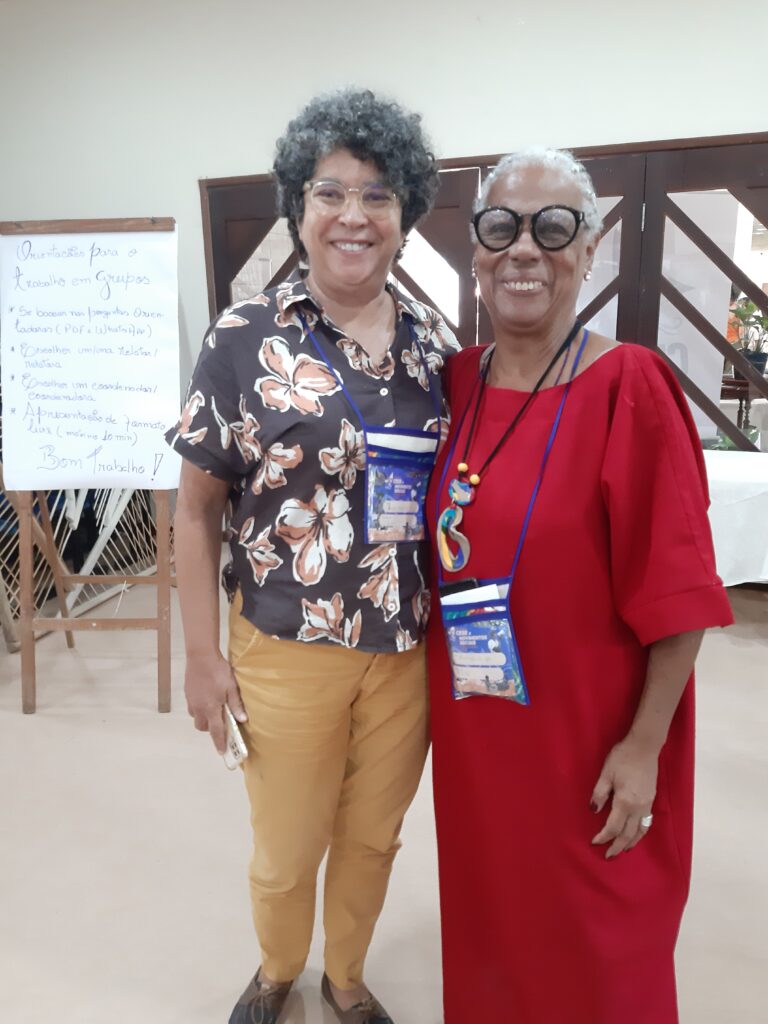
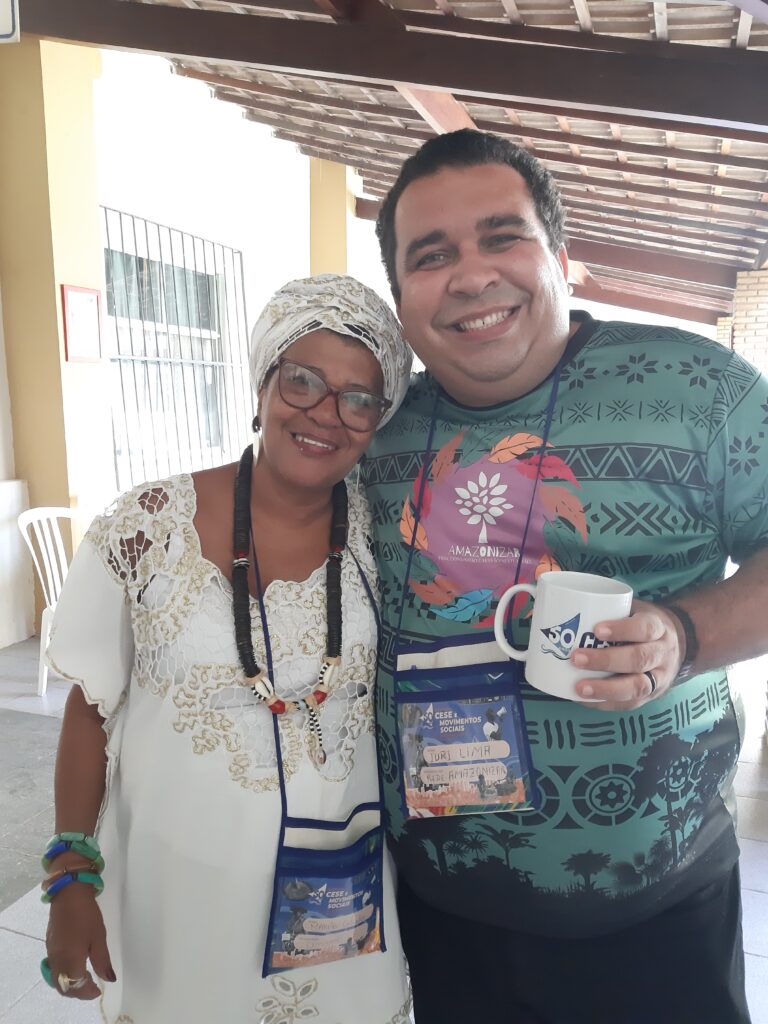
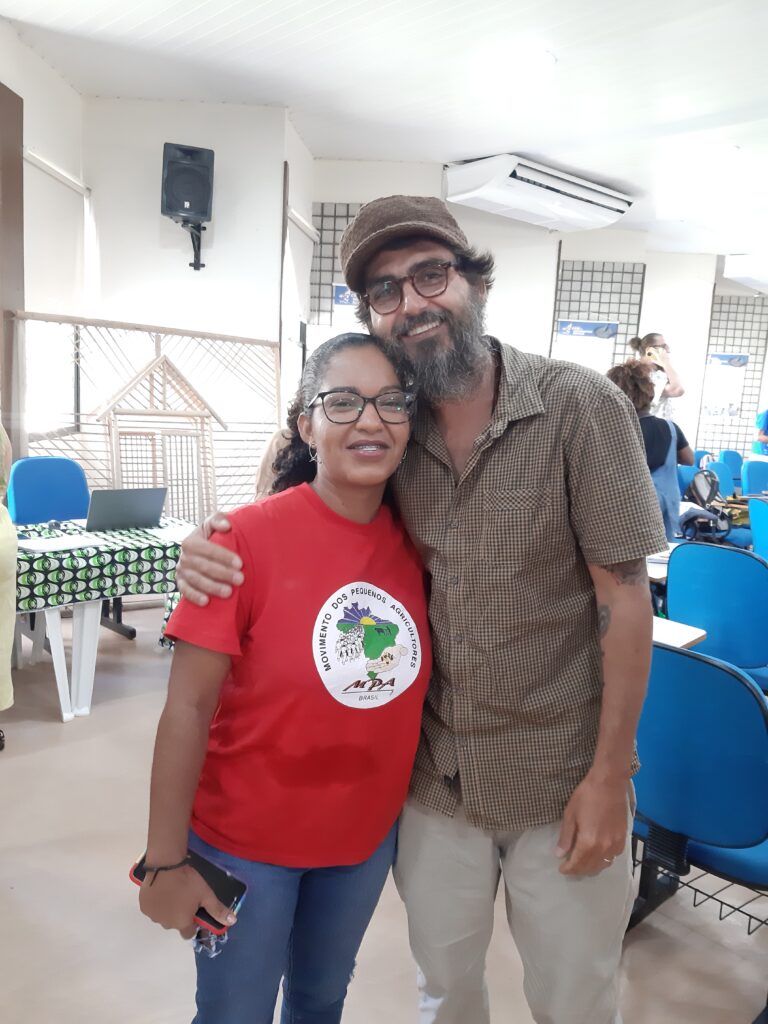
The eighth edition of the meeting officially opened CESE’s 2023 commemorative programme, since on 13 June, it will celebrate 50 years of existence and struggle alongside the movements. The programme also includes an opportunity to look back over the organization’s history, provided by Dimas Galvão, Projects and Training Coordinator, who has created a timeline since its foundation in 1973, locating CESE at important moments in the historical timeline of Brazil and the movements. The night of the first day included a cultural presentation by young people from the Aldeia Tubarão Quilombo.

When she closed the meeting, CESE’s Executive Director, Sônia Mota, highlighted the fact that dialogue with the movements is what really feeds into the organization’s roadmap. “We decided we would only review our Institutional Policy Plan after we had heard what you have to say. We are, because you are, and you strengthen us. We support your projects in the certainty that you will confront problems. And we also recognize the place CESE occupies in raising these issues within the churches. Thank you for your support!”

